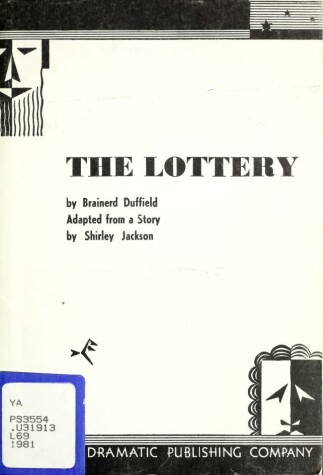Reviewed by Witty and Sarcastic Bookclub on
In the beginning of “The Lottery” the tone is almost lighthearted. The reader is given no clue that the story will end in such an upsetting way. The men talk about their crops; the children talk about school and eventually even start playing. The story says that “Bobby Martin had already stuffed his pockets full of stones, and the other boys soon followed his example, selecting the smoothest and roundest stones” . With the picture the author has painted of a lighthearted ceremony, I wondered at first if the boys are grabbing stones to skip across a lake, or to use as a fort. Only at the end is it revealed that those very stones gathered by the children were to be used to stone someone to death- possibly even one of the very children who gathered the stones. The lottery has taken on a familiar feel to the participants, and almost seems to signal the beginning of a season. Certainly, no one seems to be upset or even reluctant to participate.
Despite the chilling violence that has taken place for years and years, no one questions or objects to the sacrificing of a life. In fact, when one woman points out that some places have stopped having lotteries, a man claims that there’s “nothing but trouble in that”. This is where I started to see a little beyond the surface, and felt rising tension. This “turn”, so to speak, is one that has served Jackson well in her other works, and it worked wonderfully here. The villagers accept the violence without argument, even encouraging their children to participate. There is almost a duality shown in the neighbors. They can talk about doing dishes one moment, and plan on stoning someone to death in the next. However, the ultimate protest of the person who has “won” the lottery, coupled with the relief of those who have not, shows that no one is quite comfortable with the situation. Not one of them steps in, says anything against it, or even foregoes the chance to throw a stone, though. This shows an apathy and unwillingness to take steps to change or improve. The keeping of tradition is the most important thing, no matter that the tradition is violent and wrong. Even the disheveled state of the lottery box, which has not been fixed, shows a stoic acceptance and indifference- perhaps even an active resistance- to changing or stopping the violence.
“The Lottery” isn’t just a creepy little tale: it’s a commentary on the acceptance of violence, and an unwillingness to question the status quo. This unwillingness to change anything, or even examine whether change needs to happen is still echoed today. Seen through that lens, “The Lottery” becomes at once both fascinating and disturbing. Can you see why I can’t stop thinking about it?
Have you read “The Lottery”? (I kind of hope so, if you’ve read this post, seeing as I posted spoiler after spoiler). What did you think? Did you get the same things out of it that I did?
Reading updates
- Started reading
- 6 June, 2021: Finished reading
- 6 June, 2021: Reviewed
